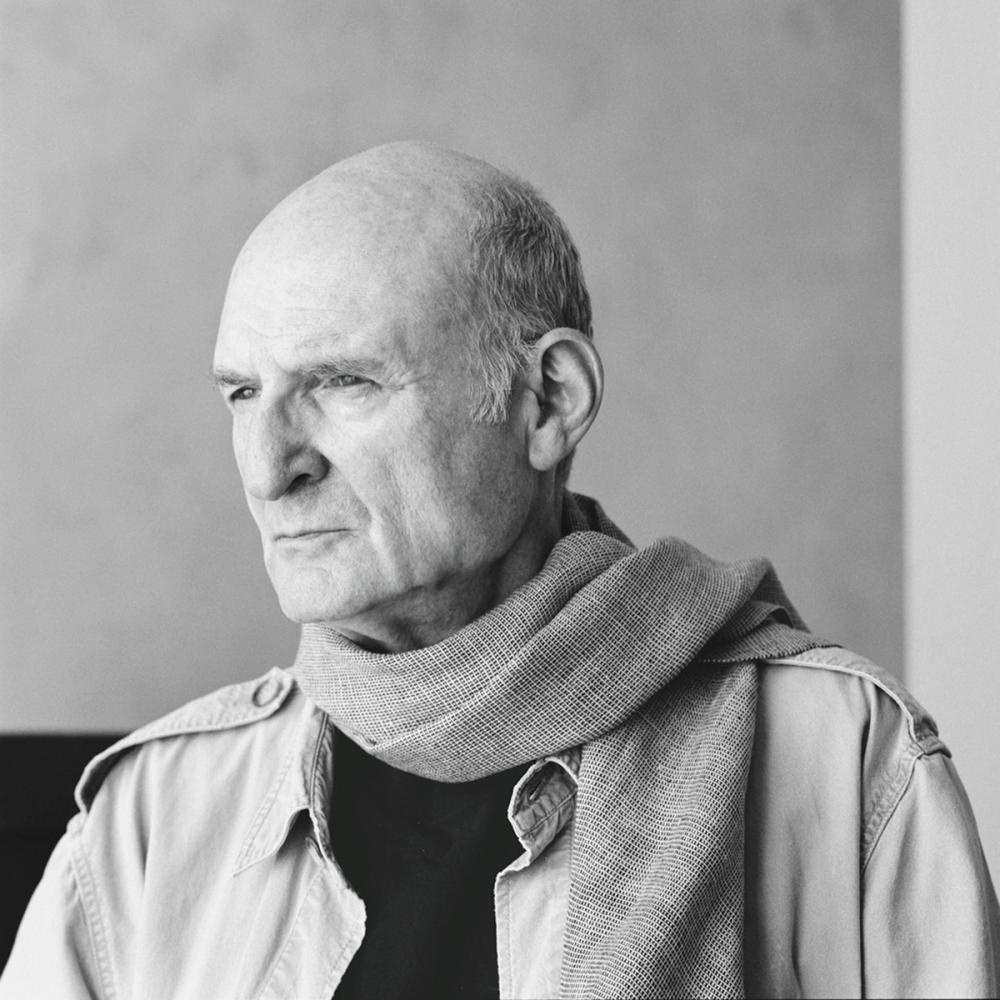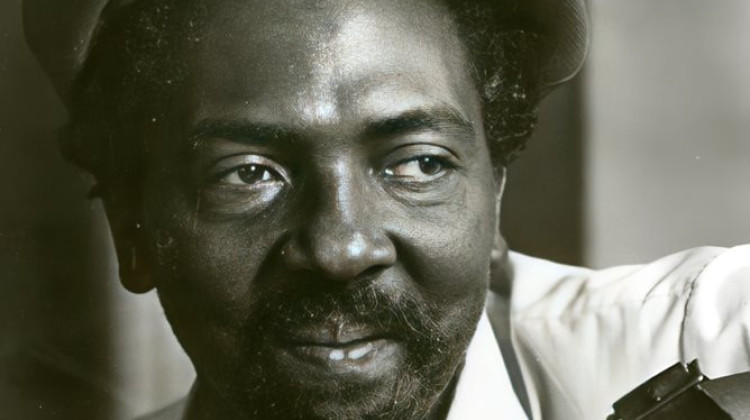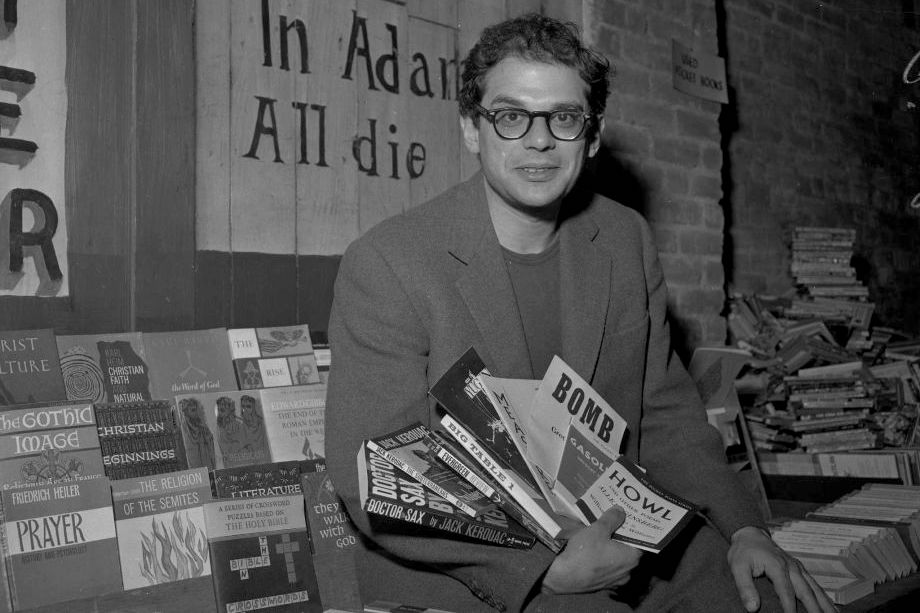PennSound Daily (original) (raw)
In Memoriam: Nathaniel Tarn (1928–2024)
Today we're sad to share the news that poet, translator, and anthropologist Nathaniel Tarn has passed away just a few days shy of his 96th birthday. Born in France in 1928, Tarn's peripetitic life took him to Belgium, England, and eventually the US, where he'd teach at Rutgers for more than a dozen years before retiring to New Mexico in the mid-1980s.
His life as a poet spanned nearly 60 years, with the most recent publications including Atlantis, an Autoanthropology; The Hölderliniae; and Palenque: Selected Poems 1972-1984. Forrest Gander has praised Tarn's poetry, observing that "Tarn’s books have inspired a wild, almost religious devotion among readers. His work is a tremendous force field in which world and perception collaborate in the construction of innovative formal 'architextures' for a sensual language that has no like." He concludes, "Tarn is one of the most elegant and formidably intelligent minds in contemporary poetry. His books open up a means for us to be delighted again to belong to this world."
On PennSound's Nathaniel Tarn author page, you'll find a modest collection of recordings, including readings at SUNY Buffalo, Hoboken, Harvard University, the Louisville Conference (as part of the Lute & Drum series), London (for the Shearsman reading series) and our own Kelly Writers House. There are also a number of album releases, including two New Mexico readings from the VOX Audio collection and Tarn's 1985 collaboration with musician Billy Panda, I Think This May Be Eden. There's also a link to PoemTalk #42, which covers Tarn's poem "Unravelling / Shock."
We send our condolences to Tarn's family and his network of friends and fans worldwide.
PoemTalk #197: on Marjorie Welish's "Begetting Textile"
Filreis offers this lyrical take on the poems' impact in his write-up of the new episode: "The poems are texts in the sense of text inside the term textile. They are barely raveled. Phrase do and don't knit. A sweater is put on and overcomes mimesis. Fragmentation, the group agrees, is not the vibe — that’s too definitely indefinite." He continues, "Welish deploys phrasings on the page that convey the unraveling of work (and the meaning of work, especially women's work) rather than fractioning, shattering, and atomizing," before asserting, "There is a wholeness to the untangling."
You can listen to this latest program and learn more about the show here. PoemTalk is a joint production of PennSound and the Poetry Foundation, aided by the generous support of Nathan and Elizabeth Leight. Browse the full PoemTalk archives, spanning more than a decade, by clicking here.
Etheridge Knight Reads 'Prison Poems,' c. 1968
Today we're shining the spotlight on a historic recording of Etheridge Knight reading from Prison Poems at the Indiana State Prison. While we don't have precise info regarding the date of this event we believe that it took place towards the end of his incarceration, which ended in 1968. Of the eight years Knight served for armed robbery, he has said, "I died in 1960 from a prison sentence, and poetry brought me back to life."
When these segmented tracks were first introduced, our own Al Filreis commented that the "recording is marred by — or indeed perhaps enhanced and positively complicated by — the loud music playing in the background." You can judge for yourself.
Altogether, there are twenty-eight tracks, including an introduction and the following titles among many others: "Cell Song," "Hard Rock Returns to Prison from the Hospital for the Criminal Insane," "To the Man Who Sidled Up to Me and Asked: How Long You In Fer, Buddy?," "Poems for Black Relocation Centers," "For Malcolm, A Year After," and "Apology for Apostasy." You'll find these tracks, along with Watershed Tapes' album, So My Soul Can Sing and video footage of a 1980 reading for the Friends of the Scranton Public Library Poetry Series on our Etheridge Knight author page.
Leonard Schwartz with Simon Carr at Bowery Gallery, 2024
Today we're proud to announce a new reading by Leonard Schwartz at New York City's Bowery Gallery. Recorded on March 16th of this year this event was held in conjunction with the exhibition Simon Carr: Play Ground and celebrated Horse on Paper (Chax, 2024), the third multi-genre collaboration between the two, joining Not a Snake (2023) and Salamander: A Bestiary (2017). Running just over seventy minutes the recording includes a gallery talk by Carr and Schwartz reading his poems from the volume.
You'll find this video on PennSound's Leonard Schwartz author page alongside a number of PoemTalk appearances and more than a dozen recordings of readings and performances going way back to the early 90s. Of course, we'd be remiss if we didn't also mention Schwartz's much-missed radio program Cross Cultural Poetics (2003–2018), which provided listeners with nearly 400 episodes showcasing the best of the worldwide arts scene. PennSound is proud to host the complete archive of the series.
David Shapiro at UMass Amherst, 2004
Shapiro's visit included two events, starting with a talk on painters Fairfield Porter and Jasper Johns. That was followed by a lengthy reading that we've segmented into 55 tracks, including 17 tracks of comments peppered amongst the poems, which include "To The Earth," "Falling Upwards," "Funeral For Jan Palach," "Snow at Night," "Stay Stay Stay Stay," "A Book of Glass," "The Boss Poem," "The Will," "Light Bulb," "Prayer for a House," "A Song For Rudy Burckhardt," "Winter Work," and "Colorful Hands," among many other.
You'll find these new recordings on Shapiro's PennSound author page, along with a modest collection of more recent recordings, including a pair of Segue Series events and a reading for Dia Art Foundation, and a 1976 ten-year memorial for Frank O'Hara at the Poetry Project, which also featured Joe LeSeuer, Patsy Southgate, Jane Freilicher (reading James Schuyler), Anne Waldman as MC, Kenneth Koch (reading "Awake in Spain"), Carter Ratcliffe, Tony Towle, Patsy Southgate, and Peter Schjedahl. Click here to start exploring.
Daphne Marlatt: 'Like Light off Water: Passages from Steveston' (2008)
Today we take a closer look at one of the most iconic works by Canadian poet Daphne Marlatt in a unique setting. Like Light off Water: Passages from Steveston was originally released on CD by Otter Bay Recordings in 2008, and presents passages from Marlatt's beloved 1974 collaboration with photographer Robert Minden with musical embellishments written and performed by Minden and Carla Hallett. As Douglas Barbour observes, Steveston is "a carefully documented and deeply personal overview of the town in history," including its time as an internment camp for Japanese Canadians during the Second World War.
This is not the first time that Marlatt and Minden have revisited the Steveston project. The creators reconfigured the manuscript for a twenty-fifth anniversary edition, which separates the poems and photos into different portfolios, with both adding mew material. Speaking about the project as a whole, Marlatt notes, "There was something in Steveston which drew us, over and over again, and which our work attempted to enunciate — something under the backwater quiet, the river hum of comings and goings, the traffic of work, that was shouting at us to tell it." Writing in The WholeNote Magazine in 2009, Dianne Wells offered high praise for the album: "Marlatt's words bring you to the river's mouth and into a sensuous landscape of lives lived in canneries, fishing camps, on the sea and over time. Listen to the sounds of vintage waterphones, bowed carpenter’s saws, found object percussion and voice – a delicate resonance which surrounds Marlatt's poetic voicing, rhythm and imagery." She continues, hailing the music's ability to conjure up "the rippling and twinkling of water and light, together with haunting depictions of mysterious and erotic undercurrents mixed with the gentle beauty of the night sky.”
You can listen to all eight tracks — including "Imagine: A Town," "Moon," and "Intelligence (As If By Radio?" — by clicking here.
Happy Birthday to William Butler Yeats
First and foremost, there are eight tracks of the poet himself, taken from various sources and recorded between 1931 and 1937. "The Lake Isle of Innisfree" is best represented here, with three separate renditions (from 1932, 1936, and 1937) plus a brief track of Yeats discussing the poem in 1932. Other tracks include two stanzas from "Coole and Ballylee," "The Fiddler of Dooney," and "The Song of the Old Mother," plus a six-and-a-half minute track from 1936 in which Yeats discusses modern poetry.
You'll also find three readings by John Trimmer — of "The Wild Swans at Coole," "Leda and the Swan," and "Sailing to Byzantium" — as well as excerpts from a pair of titles read by Naomi Replansky, along with an extensive survey of Yeats poetry read by UPenn professor emeritus John Richetti. This Wexler Studio session from 2017 includes forty-two titles in total, among them "The Lake Isle of Innisfree," "September 1913," "Easter 1916," "Sailing to Byzantium," "Leda and the Swan," and "Crazy Jane Talks with the Bishop," along with many more. Finally, you'll find a link to PoemTalk Podcast #66 from 2013, in which Taije Silverman, Max McKenna, and John Timpane joined Al Filreis to discuss "The Lake Isle of Innisfree."
Michael Ruby Reads from 'Close Your Eyes, Visions,' 2023
Today we present a new batch of recordings from Michael Ruby, which come from a 2023 session engineered by Chris Funkhouser. Here, in ninety-three individual tracks, we discover the majority of Ruby's latest collection, Close Your Eyes, Visions, which was published by Station Hill Press earlier this year.
As that comma in the middle of the title suggests, Ruby's latest consists of two discrete sequences, and the recordings are presented as such. Close Your Eyes is represented by fourteen poems in series running between four and ten minutes in length. Visions takes a very different form, with a grand total of seventy-eight poems, dates serving as titles, which span from 2007 to 2013.
On PennSound's Michael Ruby author page you'll find these sequences as well as complete studio recordings of many of the poet's books, including The Star-Spangled Banner, The Mouth of the Bay, The Edge of the Underworld, Inner Voices Heard Before Sleep, and Compulsive Words, along with readings from 2000 to the present.
Allen Ginsberg on 'Stonewall Nation,' 1978
Today we're highlighting a real treasure from the audio archives of Robert Creeley: Allen Ginsberg's appearance on Stonewall Nation — hosted by Alex Van Oss, on Buffalo's WBFO-FM — during a visit to SUNY-Buffalo in the fall of 1978.
Joined by Peter Orlovsky and Al Hershberger, Ginsberg, no stranger to speaking candidly about his queerness (or any other topic), holds forth on a variety of topics, from his closeted youth and coming out to his family, along with the Beat Generation's relationship to nature, and contemporaneous political topics like California's Briggs Amendment — which he initially approaches from a literary perspective, highlighting classic authors (from Whitman to Wilde, Genet to Plato) who California teachers would be banned from assigning — as well as the Rocky Flats Nuclear Plant.
The show begins with a performance of "Gospel Noble Truths" (in a different arrangement than what would become Ginsberg's standard, and with some slight lyrical variations), and also includes excerpts from the recently-written "'Don't Grow Old,'" concerning Ginsberg's coming out to his father, and ends with a performance of "Everybody Sing" (which famously asserts that "everybody's just a little bit homosexual, whether they like it or not"). To listen, click here to visit our Allen Ginsberg author page.
Belladonna* GIST : Two Readings, 2024
Now in its twenty-fourth year, Belladonna* is "a reading series and independent press that promotes the work of women writers who are adventurous, experimental, politically involved, multi-form, multicultural, multi-gendered, impossible to define, delicious to talk about, unpredictable, and dangerous with language." You can watch these latest additions by clicking here, and there are countless amazing recordings spanning the series' complete history waiting for you to discover on PennSound's Belladonna* series page.
Happy Birthday, Allen Ginsberg
June 3rd is the birthday of Beat Generation legend Allen Ginsberg, who would have turned 98 today. For many generations, Ginsberg has served as an important gateway to poetry — I've written and spoken about my own teenage experience discovering his work and its life-changing effects — and in these turbulent times it's well worth remembering that for Allen poetry and politics were inextricably linked, from his earliest scribbles through to his deathbed writings.
From the civil rights movement to queer liberation, nuclear disarmament to environmentalism, censorship to anti-imperialism, Ginsberg (who originally aspired to being a labor lawyer) tirelessly fought the good fight on behalf of the oppressed and challenged those in power to do better. We see it in his dream cabinet in "Death to Van Gogh's Ear," his demands for the Clinton presidency in "New Democracy Wish List," and hundreds more poems written over his fifty-year career. Moreover, a spirit of radical empathy guided both his work and his worldview: "I'm with you in Rockland," he pledges to Carl Solomon in the footnote to "Howl," his most iconic poem, and undoubtedly he would be with us in Minneapolis, in Ferguson, in Baltimore, in Cleveland, in Sanford, and every other battleground in our long and ongoing struggle for justice.
We are honored to be able to share a startling array of recordings — readings, songs, interviews, talks, and more — on PennSound's Allen Ginsberg author page, which spans more or less the entirety of his writing career, from a few 1956 sessions all the way up to his legendary residency at the Knitting Factory in 1995, during which he gave authoritative readings of his three finest long-form pieces: "Howl," "Kaddish," and "Wichita Vortex Sutra." You'll find the majority of Ginsberg's most iconic poems — aside from the aforementioned titles, "A Supermarket in California," "America," "Sunflower Sutra," "The Lion for Real," "Don't Grow Old," "Plutonian Ode," "Gospel Noble Truths," "Do the Meditation Rock," "Hum Bom," and "After Lalon" are all there — but the real treat for diehard fans are the more obscure titles, the telling asides between poems, and the pieces shared with audiences in their earliest drafts. To hear Ginsberg read "Autumn Leaves" or "Manhattan Mayday Midnight" or "Tears" or "To Aunt Rose" or "Transcription of Organ Music" or "After the Big Parade" is as much a delight as encountering them for the very first time. You can start exploring by clicking here.






